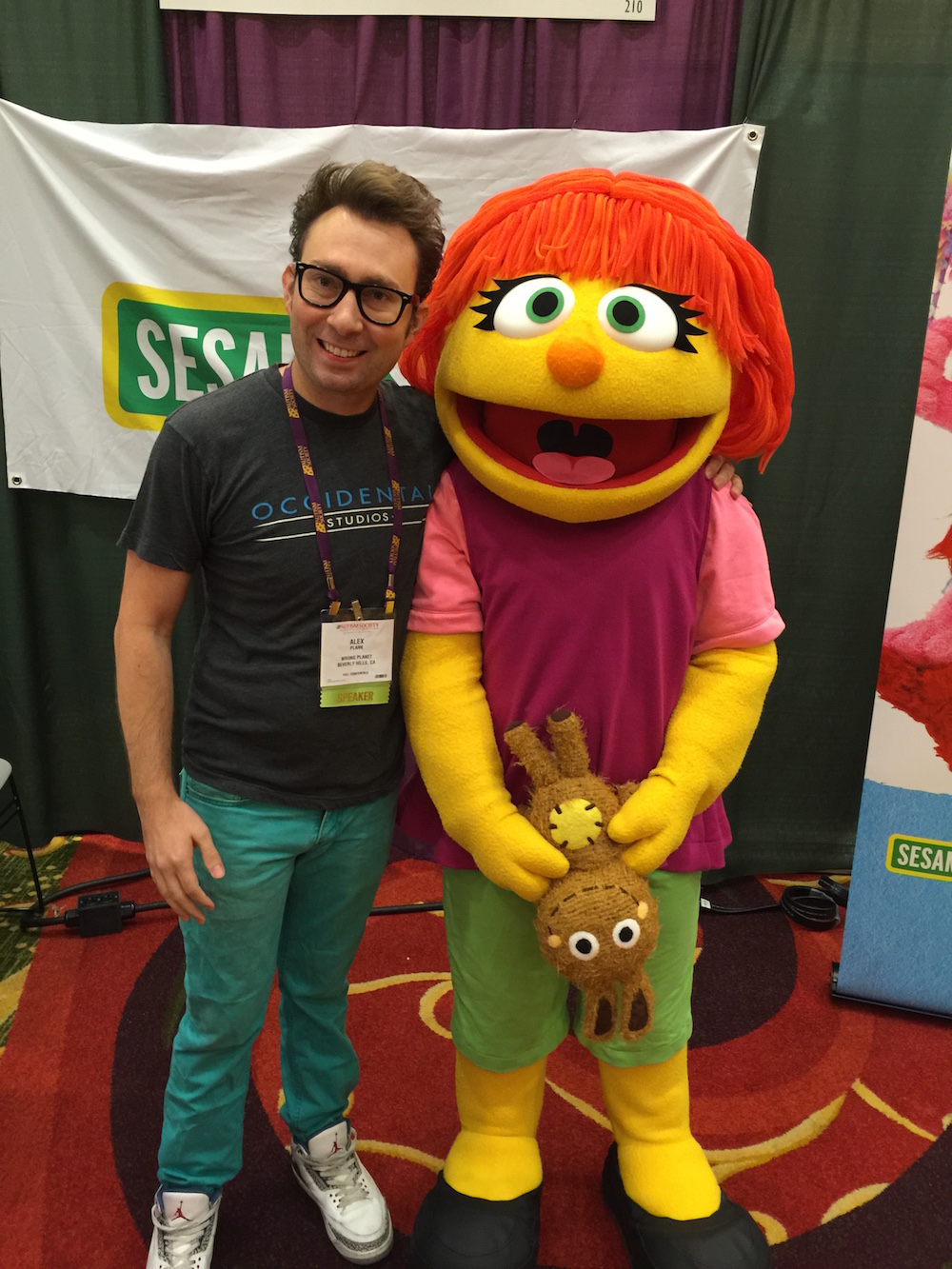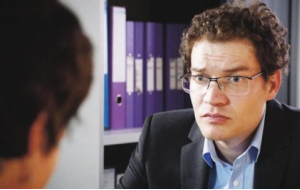Hollywood’s Exclusion of Autistic Actors Highlights its Biggest Diversity Problem: Disability
Hollywood has come a long way in the representation of autistic people since the release of Rain Man almost 30 years ago, but one major problem that still exists is the lack of representation of autistic actors. There are an increasing number of autistic characters on television and in film, but almost none of these characters have been played by actors who are actually autistic, despite the fact that there are many of us able to play those roles.
I’m autistic and work as a consultant for autistic characters in Hollywood. I’m best known for my work on FX’s The Bridge, in which the main character was a female autistic detective, played by Diane Kruger. The Peabody-award-winning show was widely praised for its accurate and nuanced portrayal of an autistic character, a departure from the unfortunately common autistic hollywood stereotype. I worked closely with the writers, producers, directors, and Ms. Kruger to develop the character. Additionally, I was on set, ensuring that her portrayal was always authentic. The Bridge’s commitment to diversity could also be seen in its writer’s room, which included writers who were female, gay, and Hispanic. The room even included writers whose identity had an intersectionality of those three Hollywood minority groups.
But the character was not played by an autistic actor. FX wanted a celebrity to star in the show and unfortunately, there were no autistic actors with enough star-power to play the part. To the credit of The Bridge’s commitment to diversity, I was actually cast in one minor recurring role, a newspaper employee, which ironically was written as a neurotypical character. But I don’t know of any other openly disabled actors who worked on the show.
Ben Affleck is the next major star to take on autism. He will be playing an autistic accountant in the upcoming film, The Accountant.

And in the recent independent film, Jane Wants a Boyfriend, Louisa Krause played an autistic woman opposite Eliza Dushku. The filmmakers certainly could have cast an autistic actor instead of Krause because she is relatively unknown and Eliza Dushku is enough of a star to secure financing and attract an audience. The same was true with the independent film, The Story of Luke, in which neurotypical actor Lou Taylor Pucci played an autistic character opposite Seth Green. And there are many more examples of minor autistic characters being played by neurotypical actors, where star-power has absolutely no influence on casting.
 The only example I could find of an autistic actor playing an autistic character was in this season of BBC’s Holby City, where Jules Robertson was cast as a recurring character in eight episodes. I was excited to see the show but upon watching it, I became a bit disappointed by the writing, which was stereotypical. In the first moments the character is introduced, he takes a few things literally, unknowingly makes an offensive comment about an older woman’s age, and states “If I’m direct, it’s because I have Asperger’s Syndrome.” While Holby City should be commended for casting an autistic actor, the writers room didn’t write a nuanced character. Despite this, Robertson did a great job playing the role and he seemed authentic even when the writing was over the top (which was most of the time). I can’t imagine a neurotypical actor handling that character as well as Robertson did, which underlines the importance of authentic casting but also highlights the importance of autistic input behind the camera.
The only example I could find of an autistic actor playing an autistic character was in this season of BBC’s Holby City, where Jules Robertson was cast as a recurring character in eight episodes. I was excited to see the show but upon watching it, I became a bit disappointed by the writing, which was stereotypical. In the first moments the character is introduced, he takes a few things literally, unknowingly makes an offensive comment about an older woman’s age, and states “If I’m direct, it’s because I have Asperger’s Syndrome.” While Holby City should be commended for casting an autistic actor, the writers room didn’t write a nuanced character. Despite this, Robertson did a great job playing the role and he seemed authentic even when the writing was over the top (which was most of the time). I can’t imagine a neurotypical actor handling that character as well as Robertson did, which underlines the importance of authentic casting but also highlights the importance of autistic input behind the camera.
Diversity has become a hot-button issue in Hollywood, where discussions focus on race, gender, sexual orientation, and even gender identity. Disability and autism, however, are left out of the discussion. At this month’s Television Critics Association presentations, CBS was criticized for its schedule of shows in which there are no non-white leads. But no one ever thought to criticize CBS (or every other network, for that matter) for having no disabled leads, despite the fact that individuals with disabilities are the largest minority group in America. If Hollywood wants to represent true diversity, it needs to make a much better effort to be inclusive of autistics and people with disabilities.
Recent Posts
Atypical’s 2nd Season is a Step Forward in Autism Representation
The Dawn of Autistic Space – Excerpt from NeuroTribes
Hollywood’s Exclusion of Autistic Actors Highlights its Biggest Diversity Problem: Disability
This is the Most Important Election of My Life Because I’m Autistic
Toni Braxton’s son was not cured of autism and it’s irresponsible for her to say so




Comments
Before you can get openly Autistic actors playing Autistic characters you have to get actors to come out as autistic. Since Seinfeld said he might be autistic and was massively criticized then said he was not autistic has any entertainment star besides Jefferies come out? None that I know of and it has been almost 2 years.
I do not think we have advanced that much since Rain Man. Most charactors are milder more sexually diverse versions of the same charactor. Hank on Parenthood was probably the biggest break from the stereotype a middle age average intelligence working class/middle class guy, savant at nothing. It should be noted that the clinicion decided Hank was kind of autistic not fully autistic.
I don’t really think there’s an active discrimination of autistic actors. Though some autistic people may excel at it, acting doesn’t seem like something that would come naturally to someone who’s autistic. We have lots of impairment in reading and displaying emotions, and that is the one thing that acting demands of people, so it would be natural for autistic people to be underrepresented in the field of acting.
Saxgeek, there are plenty of actors with autism. In some ways I think autistics may be better at it. We’ve had to act "normal" our whole lives just to fit into neurotypical society.
I wish Ryan Gosling would come out.
Almost all actors decline to play characters which are too similar with their own lives. Part of the reason is a desire to maintain the ability to play characters which are outside their comfort zones. Another part is a desire to protect their personal privacy. Both are understandable, of course.
It isn’t only actors who expect certain conditions in their professional lives. Their employers, the production companies, rely on the ability of their employees to maintain a kind of professional stability as much as the production’s ticket sales or television ratings. Actors are insured (like health insurance) in case they quit, get fired, are injured and are forced to leave a production, or even engage in certain behaviors that could jeopardize the production (see Keanu Reeves’ admitted drug use).
So, it wasn’t too long ago that actors wished to avoid disclosing facts about their lives for fear that, like Will & Grace actor Sean Hayes, the facts might influence their next job, or the one after that. To their producers, even the fear of rumor drove much of the decision to employ actors (see Charlie Sheen’s threatened contract lawsuit). Fearing the loss of his future roles, Hayes disclosed his sexual orientation only after years of nondisclosure.
So, if Max Burkholder had, like his character, actually been autistic, would his concerns about a budding career in film and television be respected, or, like Hayes, should the community he represented have the right to disclose his autism by proxy? If Burkholder had been autistic in the first season of the series, how would that fact have affected the character’s portrayal in the last season?
These are the concerns and doubts that every production company anguishes over. Given that it is difficult or impossible to predict the future, most companies play it safe.
History tells us that the answer seems to reside in finding that blockbuster film or series than can afford to take chances. But, the concerns are resolved when a director or producer can see an autistic actor portray a non-autistic character as well as the autistic actor portraying a non-autistic character. That is the actor in which the production company will invest its money.